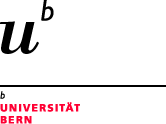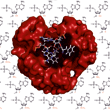|

Master in Molecular Life Sciences
M Sc program in Molecular Life Sciences
The Molecular Life Sciences (MLS) program is a joint venture of the Division of Cell- and Molecular Biology and the Departement of Chemistry and Biochemistry. It is intended for students who plan careers that cross these disciplines. The program is aimed at going more deeply into the methods and experimental approaches necessary to address questions arising in the molecular life sciences and in biomedical research. The program offers specialisations in:
- Biochemistry/Chemical Biology
- Cell and Molecular Biology
- Microbiology/Immunology
-
Neuro-/Developmental Biology
(jointly with University of Fribourg) - Plant Physiology
Graduation as Master of Science (MSc) in Molecular Life Sciences enables students to continue their academic career with a PhD study or take up a professional career. Graduates with a Master's degree in the specialisation of Biochemistry/Chemical Biology are eligible to acquire the certificate of teacher for chemistry at secondary high schools (Gymnasium) - provided that they have attended the lecture courses for inorganic chemistry I and II (as supplementary learning units).
At the centre of the Master study is the Master Thesis. The goal is the integration of principles and experimental techniques with hands-on experience in the laboratory. The experimental research project which takes one year (60 ECTS units) is carried out in a research group affiliated with the MLS program. MLS students are required to take upper level reading courses on general topics (15 ECTS units) and from their specialisation (15 ECTS units).
To qualify for admission applicants must hold a bachelor's or equivalent university degree in biochemistry, molecular biology or chemistry. In all other cases the program administration
may require complementary courses which according to circumstances can be attended before or during the Master's program.

